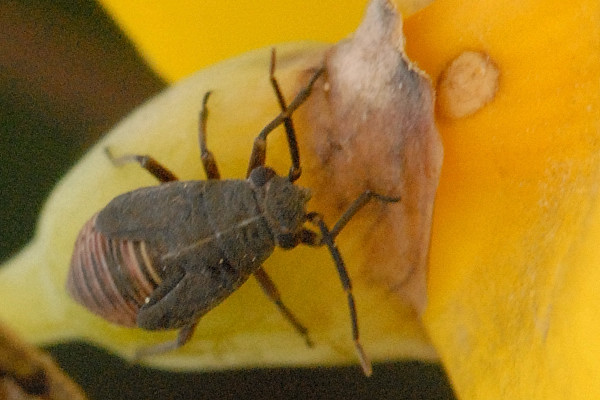|
Halticini
Halticini is a tribe of plant bugs in the family Miridae. Genera ''BioLib'' includes the following: # '' Acratheus'' Distant, 1910 # '' Anapomella'' V.G. Putshkov, 1961 # '' Anapus'' Stål, 1858 # '' Barbarosia'' Kiyak, 1995 # '' Chorosomella'' Horváth, 1906 # '' Coridromius'' Signoret, 1862 # '' Dampierella'' Tatarnic, 2009 # '' Dasyscytus'' Fieber, 1864 # '' Dimorphocoris'' Reuter, 1891 # '' Ectmetopterus'' Reuter, 1906 # '' Euryopicoris'' Reuter, 1875 # '' Goodeniaphila'' Tatarnic, 2009 # '' Halticus'' Hahn, 1832 (fleahoppers) # '' Labopella'' Knight, 1929 # '' Labops'' Burmeister, 1835 # '' Microtechnites'' # '' Myrmecophyes'' Fieber, 1870 # '' Namaquacapsus'' Schuh, 1974 # '' Nanniella'' Reuter, 1904 # '' Nesidiorchestes'' Kirkaldy, 1902 # '' Orthocephalus'' Fieber, 1858 i c g b # '' Pachytomella'' Reuter, 1891 # '' Piezocranum'' Horváth, 1877 # '' Plagiotylus'' Scott, 1874 # '' Platyporus'' Reuter, 1890 # '' Schoenocoris'' Reuter, 1891 # '' Scirtetellus'' Reuter, 1890 # ' ... [...More Info...] [...Related Items...] OR: [Wikipedia] [Google] [Baidu] |
Pachytomella
''Pachytomella'' is a genus of mostly European capsid bugs in the tribe Halticini, erected by Odo Reuter in 1891. The species ''Pachytomella parallela'' is recorded from northern Europe including the British Isles The British Isles are a group of islands in the North Atlantic Ocean off the north-western coast of continental Europe, consisting of the islands of Great Britain, Ireland, the Isle of Man, the Inner and Outer Hebrides, the Northern Isles, .... Species According to ''BioLib'' the following are included: genus ''Pachytomella'' Reuter, 1891 (retrieved 5 April 2022) # '' Pachytomella alutacea'' (Puton, 1874) # '' [...More Info...] [...Related Items...] OR: [Wikipedia] [Google] [Baidu] |
Plant Bug
The Miridae are a large and diverse insect family at one time known by the taxonomic synonym Capsidae. Species in the family may be referred to as capsid bugs or "mirid bugs". Common names include plant bugs, leaf bugs, and grass bugs. It is the largest family of true bugs belonging to the suborder Heteroptera; it includes over 10,000 known species, and new ones are being described constantly. Most widely known mirids are species that are notorious agricultural pests that pierce plant tissues, feed on the sap, and sometimes transmit viral plant diseases. Some species however, are predatory. Description Miridae are small, terrestrial insects, usually oval-shaped or elongate and measuring less than in length. Many of them have a hunched look, because of the shape of the prothorax, which carries the head bent down. Some are brightly coloured and attractively patterned, others drab or dark, most being inconspicuous. Some genera are ant mimics at certain stages of life. The Mirida ... [...More Info...] [...Related Items...] OR: [Wikipedia] [Google] [Baidu] |
Miridae
The Miridae are a large and diverse insect family at one time known by the taxonomic synonym Capsidae. Species in the family may be referred to as capsid bugs or "mirid bugs". Common names include plant bugs, leaf bugs, and grass bugs. It is the largest family of true bugs belonging to the suborder Heteroptera; it includes over 10,000 known species, and new ones are being described constantly. Most widely known mirids are species that are notorious agricultural pests that pierce plant tissues, feed on the sap, and sometimes transmit viral plant diseases. Some species however, are predatory. Description Miridae are small, terrestrial insects, usually oval-shaped or elongate and measuring less than in length. Many of them have a hunched look, because of the shape of the prothorax, which carries the head bent down. Some are brightly coloured and attractively patterned, others drab or dark, most being inconspicuous. Some genera are ant mimics at certain stages of life. The Mirida ... [...More Info...] [...Related Items...] OR: [Wikipedia] [Google] [Baidu] |

.jpg)